DIGITAL INCLUSION
IN CARIBBEAN DIGITAL TRANSFORMATION

FRAMEWORKS AND INITIATIVES
REGIONAL WORKSHOP
ADDRESSES CHALLENGES FOR CLIMATE CHANGE AND DISASTER INDICATORS
DIGITAL TECHNOLOGIES
AND THE WELLBEING OF CARIBBEAN CHILDREN AND YOUTH
Volume 9 - Issue 11
About us

Issued on a monthly basis, The Hummingbird offers insights into the latest projects, publications, technical assistance missions and research carried out by ECLAC Caribbean. In addition to these, sneak previews are provided of the most salient upcoming events, alongside enriching followups to previously covered issues. With a view to featuring a variety of facets of Caribbean life and lifestyle, The Hummingbird also zooms in on cultural activities and landmark occurrences through an eye-opening regional round-up.
EDITORIAL TEAM
Editor: Johann Brathwaite

Copy Editor: Denise Balgobin
Proof Reader: Veera Deokiesingh-Fraser
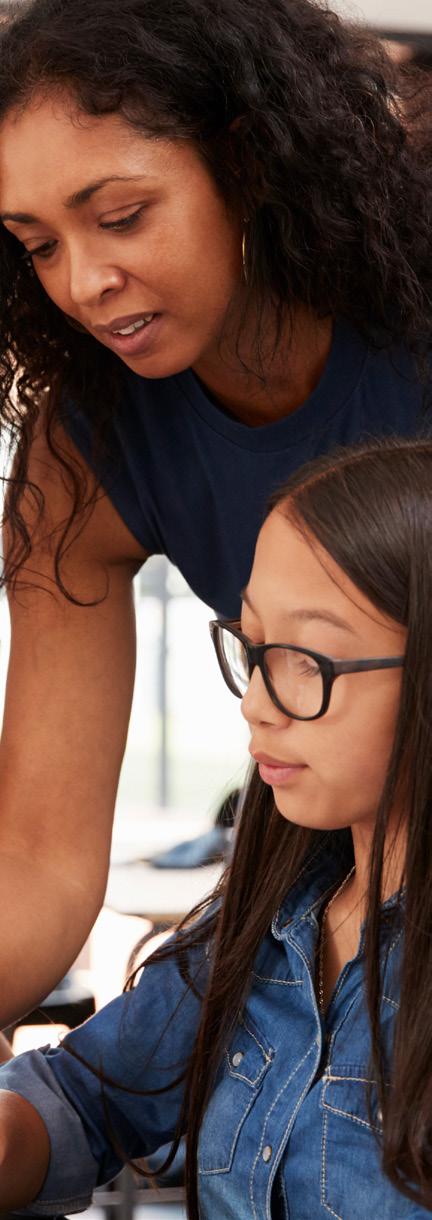
Publication Design: Liseanne Martin-Subero
Please see our contact details on the back cover of this magazine.
reviews
A HUMMINGBIRD FEATURE: Digital inclusion in Caribbean digital transformation frameworks and initiatives Regional Workshop addresses challenges for climate change disaster indicators Pirates Fest Heritage Days celebrate Cayman culture Digital Technologies and the wellbeing of Caribbean children and youth 4 6 10 11 12 4 13 9
Expert group meeting
study on science, technology and innovation
1 December
2 December
18 December
1 DECEMBER 2021
Global Policy Dialogue (GPD) - Post COVID-19 Resurgence of MSMEs and Competition Policy
3 DECEMBER 2021
Antigua and Barbuda: National workshop on generating climate change and disasters indicators for policy decision-making
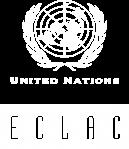

17 DECEMBER 2021
Online Course: "Use and interpretation of trade indicators, including Input-Output analysis"
International Days Upcoming Meetings
World
AIDS Day
International
Day for the Abolition of Slavery
10 December Human Rights Day
International
Migrants Day
ECLAC Caribbean recently convened an expert group meeting (EGM) to discuss a new study, entitled: “Science, Technology and Innovation for Sustainable Development: Lessons from the Caribbean’s Energy Transition”. This study assesses the importance of STI in supporting sustainable energy, and focuses on the electricity sector, to determine the linkages between Science, Technology, Innovation and the energy transition.
The study also identifies lessons and best practices for driving the energy transition in two Caribbean countries, Barbados and Jamaica. It makes recommendations for advancing STI in Caribbean small island developing States (SIDS).

In opening the EGM, ECLAC Caribbean’s Deputy Director, Dillon Alleyne expressed the hope that the assessment from participants would strengthen the study. “This meeting is part of the formal review process of ECLAC’s work, and I urge you to offer frank feedback on the research findings and proposed recommendations.”
He explained that countries with robust STI-based policies and strategies are known to have an advantage in global competitiveness. He said that STI, along with effective governance, have become fundamental tools for supporting the transformation of productive structures, sustainable use of natural resources, and delivery of health care, food, education, energy and transport and other social needs.
Expert group meeting reviews study
ON SCIENCE, TECHNOLOGY AND
INNOVATION
4|The Hummingbird
According to Alleyne, despite strides made in the past in the development of technological innovation, the subregion ranked poorly in global STI rankings. He noted that national innovation systems were either deficient or altogether absent. “For example, the number of Government agencies supporting the development of STI - such as thematic ministries and other specialized institutions –have decreased with time. Notwithstanding, the perception among policymakers and experts in the region is that STI needs to be advanced by governments in close partnership with the private sector, academia, civil society organizations, and the general public.”
The Bahamas removes
ALL TESTING REQUIREMENTS FOR TRAVEL
He told meeting participants that most countries in the Caribbean spent a sizeable percentage of their foreign exchange importing high-cost fossil fuels, that were subject to highly volatile international prices. In 2015, 90 per cent of fuel and oil were imported in Barbados, consuming some 6.9 per cent of the country’s GDP. Antigua and Barbuda imported almost 100 per cent of its energy resources representing some 12 per cent of GDP.
To counteract these effects, he said that CARICOM countries agreed to achieve a 47 per cent renewable energy target by 2027 and some countries identified sustainable energy as an area of priority during the midterm review of the SAMOA Pathway.
For this reason, the advancement of STI in the energy sector was important to support the development, adaptation, and implementation of renewable energy technologies.
This study is expected to be published shortly.
In a significant step, The Bahamas has officially removed testing requirements for all travelers entering the country. That means travelers no longer need to show proof of vaccination or proof of a negative test result in order to enter the country.
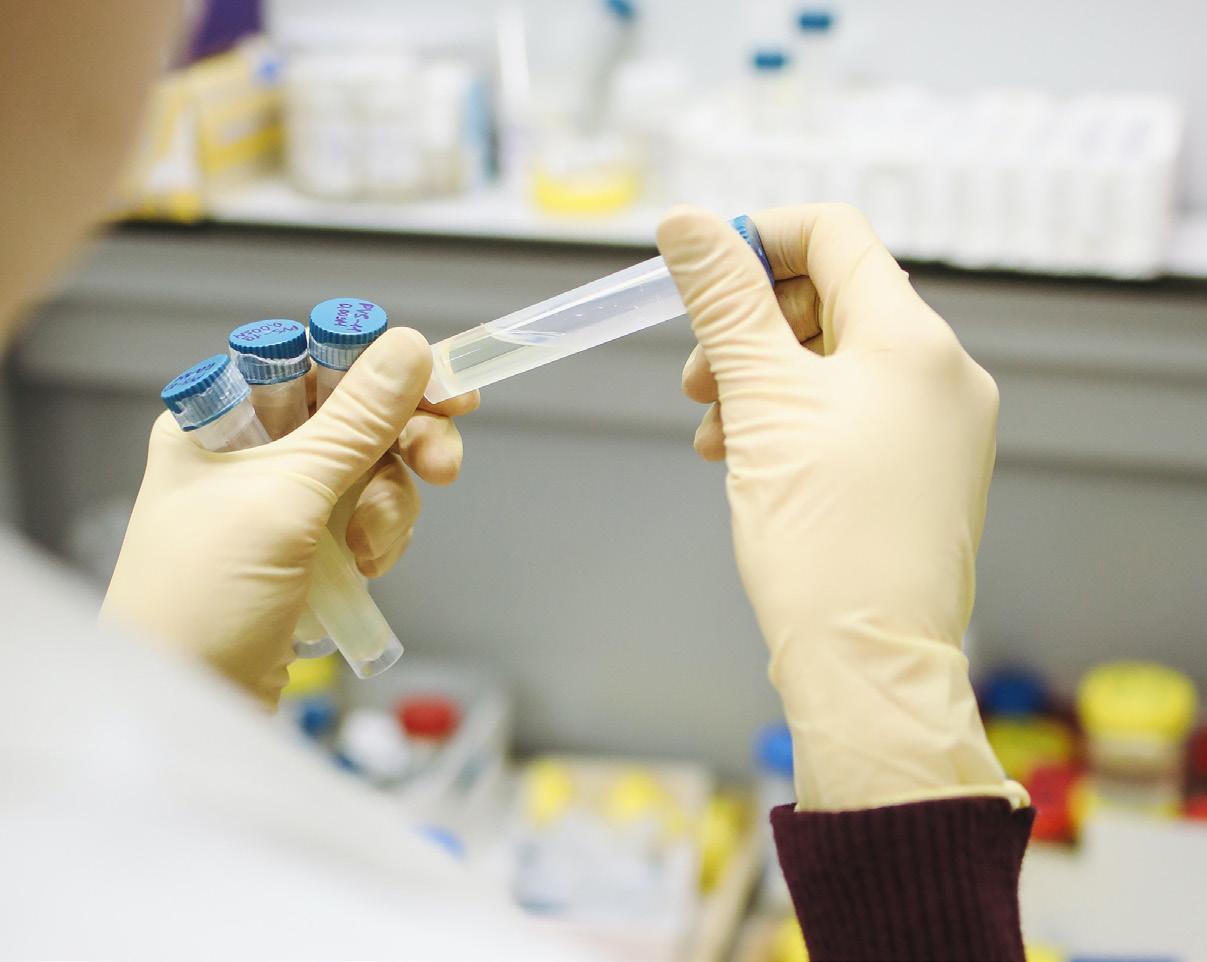
The Bahamas becomes one of the most high-profile destinations in the Caribbean to remove its testing and vaccination rules, following the pattern of a growing number of destinations that now includes hotspots like the US Virgin Islands, the Cayman Islands, Jamaica and Saint Kitts and Nevis, among others.
Testing is also no longer required for those traveling interisland within The Bahamas, regardless of vaccination status. It should be another boost for a destination that has been seeing surging tourism arrivals in 2022, measured by both land and sea arrivals.
The Bahamas’ Deputy Prime Minister and Minister of Tourism Chester Cooper recently announced that he expected the destination to “exceed” its pre-pandemic tourism totals in 2023.
It has been a broad recovery for the destination, from traditional tourism strongholds in Nassau and Paradise Island (including strong occupancy at the Atlantis Paradise Island and Baha Mar resorts) and Grand Bahama, to Out Island getaways like Exuma, Bimini, Harbour Island, Eleuthera, Cat Island and Abaco, among others.
That will be driven, Cooper said, by a strong increase in the country’s hotel stock, both from expansions of existing hotels and new-build properties.
The Hummingbird |5
Digital inclusion in Caribbean
DIGITAL TRANSFORMATION FRAMEWORKS AND INITIATIVES

6|The
Hummingbird
Over the past two decades, the Caribbean has made great strides in increasing access to and use of information and communication technology (ICT). More people are covered by a mobile network and have access to broadband, while devices and connectivity have become affordable for many.

However, as the COVID-19 pandemic revealed, progress has been uneven. The subsequent move from in-person to online interactions highlighted how many people had been left out of the digital club/community. People without access to devices and connectivity were largely isolated and deprived of the many benefits ICTs can provide.
read more
The Hummingbird |7
continued from page 7
FEATURE ARTICLE - DIGITAL INCLUSION IN CARIBBEAN DIGITAL TRANSFORMATION FRAMEWORKS AND INITIATIVES

In this regard, ECLAC Caribbean prepared a study titled, “Digital inclusion in Caribbean digital transformation frameworks and initiatives”. This study evaluates the extent to which digital inclusion is considered in Caribbean digital frameworks. It assesses the digital transformation policies of 11 countries and territories of the Caribbean, and complements this analysis with qualitative data gathered through surveys and
interviews from ICT focal points and policymakers in the subregion.
The study suggests that unequal access to ICTs, often referred to as the digital divide, amplifies existing social, cultural, and economic inequalities in society. In this regard, the people without access are often the most marginalized, including women, older persons, people with disabilities, indigenous peoples,
migrants, refugees, and rural populations.
Of the 11 countries and territories reviewed in the study, only four, including Saint Lucia, have publicly available ICT plans that are being implemented. A common challenge noted for nearly all countries and territories reviewed was a lack of reports on the initiatives that had been implemented. Where reports were
8|The Hummingbird
available, the content was often limited to basic information such as the number of participants, rather than analyses of the effectiveness of these programmes.
The study demonstrates that countries and territories across the Caribbean have taken different paths to digital progress, and that digital inclusion is not yet a priority in most of the countries. Few countries have digitalization frameworks that are currently in effect, and digital inclusion is not considered in all the frameworks that do exist.
However, inclusion does tend to be considered in the national development plans of many
countries, and some are even considering inclusion within the context of digital transformation.
In this context, most of the study countries have a foundation upon which they can build, should they wish to pursue digital inclusion as a policy priority. The lack of data regarding the digital progress in the select countries severely limited the ability of the authors to analyze the level of transformation that has taken place within the countries.
Further, the lack of administrative data, particularly regarding initiatives that had been undertaken to further the digital progress including digital inclusion,
was another severe limitation. Given that digital inclusion efforts require information regarding populations that are excluded, this lack of data suggests that digital inclusion efforts may be ad hoc or may encounter challenges in the future.
At present, given that few digital inclusion efforts have been undertaken, any well-designed effort is likely to have a positive impact. The study recommends that efforts to identify not only who is left behind, but also who is furthest behind, should be made as soon as possible.

The Hummingbird |9
ECLAC Caribbean, along with ECLAC’s Statistics Division, the UN Statistics Division (UNSD), the Caribbean Community (CARICOM) Secretariat and the Organization of Eastern Caribbean States (OECS) Commission, have been working together over the past year and a half on a milestone Development Account project.
This project is aimed at strengthening institutional and statistical capacities of select Caribbean countries to better produce, disseminate and use environment, climate change and disaster indicators, for small island developing States (SIDS).
Work at the country level has helped in identifying coordination and data sharing, as the most critical areas where exchange of knowledge and experiences, and peer learning at the regional level bring the most value for countries.
Regional workshop addresses challenges
FOR CLIMATE CHANGE AND DISASTER INDICATORS
In this regard, a national workshop was held during 22-24 November 2022, as part of the Development Account 12th Tranche, to facilitate an exchange of ideas and peer learning among project beneficiary and non-beneficiary countries.
Participants included stakeholders from National Statistical Offices, Ministries of Environment, and Emergency and Disaster Management authorities of members and associate members of the Caribbean Development and Cooperation Committee (CDCC).
Workshop objectives included the opportunity for participants to discuss specific challenges on coordination and data sharing processes of environment, climate change and disaster statistics and share knowledge, experiences, and success stories in addressing these challenges.
ECLAC Caribbean’s Sustainable Development Officer, Laverne Walker, made a presentation at the workshop, in which she shared some of the ways climate change, disasters and the environment were crucially linked. “Climate change impacts can amplify risks, which result in disasters,” she said.
Walker explained that climaterelated disasters account for more than eight per cent of disasters caused by natural hazards, and therefore can result in damage to important ecosystems and food production systems.
The workshop ECLAC's regional resilience database, and identified the most pressing national needs in the areas of environment, climate change and disaster data that could be addressed by ECLAC in the next stages of the project.

10|The Hummingbird
Pirates Fest Heritage Days
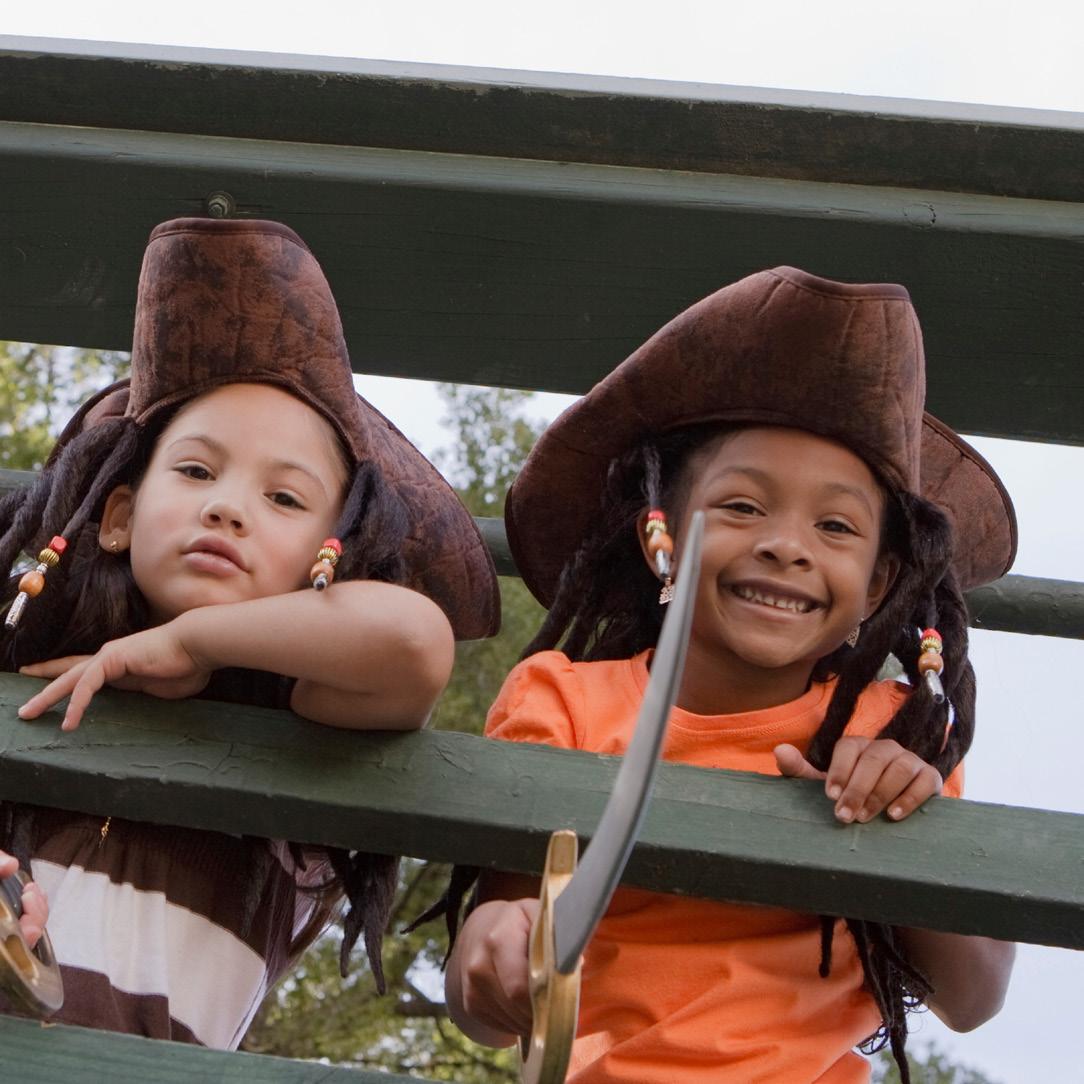

CELEBRATE CAYMAN CULTURE
The culture and heritage of the Cayman Islands takes center stage for five weeks annually, leading up to the well-known Pirates Week festivities.
Originally launched in 1978 by The Cayman Islands Tourist and Visitors Bureau, Pirates Week aimed to draw more tourists to the islands in what is historically the slow season. The benefits of this draw continue to this day, with the East End Heritage Day section of festivities also celebrating culture and providing varied and free entertainment for local residents.
The 2022 Heritage Day format is slightly different to past Pirates Week schedules, allowing for a more even spread and easier access to each activity. It also allows for more focus to fall on the rich Caymanian culture displayed in each district.
East End Heritage Day was originally slated for mid-September, but was postponed for several months, due to the passing of Queen Elizabeth II and due to Hurricane Ian.
Attendees can visit displays showcasing old time artifacts, handmade caravans, and a Caymanian house built with wood and thatch. There will be live displays and demonstrations reliving East End’s rich heritage, including an old-fashioned wedding ceremony, thatch plaiting, rope making, calabash making and roasting corn.
Games, such as skipping rope and marbles, will be featured, allowing attendees to join in the fun. A dancing competition, as well as a dance show will be performed by children from the district.
Some of the delicious foods on sale for that day will include hamburgers, hotdogs, cakes, snow cones and cotton candy, as well as local delicacies, such as Cayman-style beef, oxtail, heavy cakes and stew turtle, all washed down with swanky.
After a day of fun, education, and community, Heritage Day visitors can sit back and take in the firework show which will light up the East End sky after dark.
|11
The Hummingbird
Digital technologies and the wellbeing

OF CARIBBEAN CHILDREN AND YOUTH
Scholars from across the subregion recently presented the outcomes of research undertaken in the past six years, exploring the ways in which children and youth relate to digital technologies and the internet.
ECLAC Caribbean’s Associate Programme Management Officer, Lika Døehl Diouf, attended the recent conference, titled, “The wellbeing of children and young people in Central America and the Caribbean”, which was jointly organized by the University of the West Indies’ Sir Arthur Lewis Institute of Social and Economic Studies (SALISES) and the Toronto Metropolitan University.
The research was carried out in seven countries in the Western hemisphere, including Canada, the Dominican Republic, El Salvador, Guatemala, Honduras, Jamaica, and Trinidad and Tobago.
Diouf reported on what some of the presenters shared:
12|The Hummingbird
“Chantelle Cummings and Leah Cleghorn discussed children’s internet safety in Trinidad and Tobago, with the aim of identifying the types of risks that children are exposed to and the techniques they use to keep themselves safe. Their research found that children were very aware of the risks of being online, including grooming for human trafficking, cyberbullying, financial fraud, and others. However, the children also perceived that online risks were limited to the online world, and that the risks only materialized once they, for example, decided to meet a stranger they met online in the real world.
“Mala Ramesar presented some preliminary findings regarding student engagement in South Trinidad during COVID-19, derived from a larger ongoing study. Noting that the academic performance of students was severely affected by the COVID-19 pandemic, the research explored the potential factors that could have affected the learning experience. Improper supervision was also raised as a challenge: Parents incorrectly assumed that children could
easily self-regulate in an online learning setting or provided inadequate support for disciplinary management. The inadequate support for online learning, including a lack of psychological support for students was also raised.”
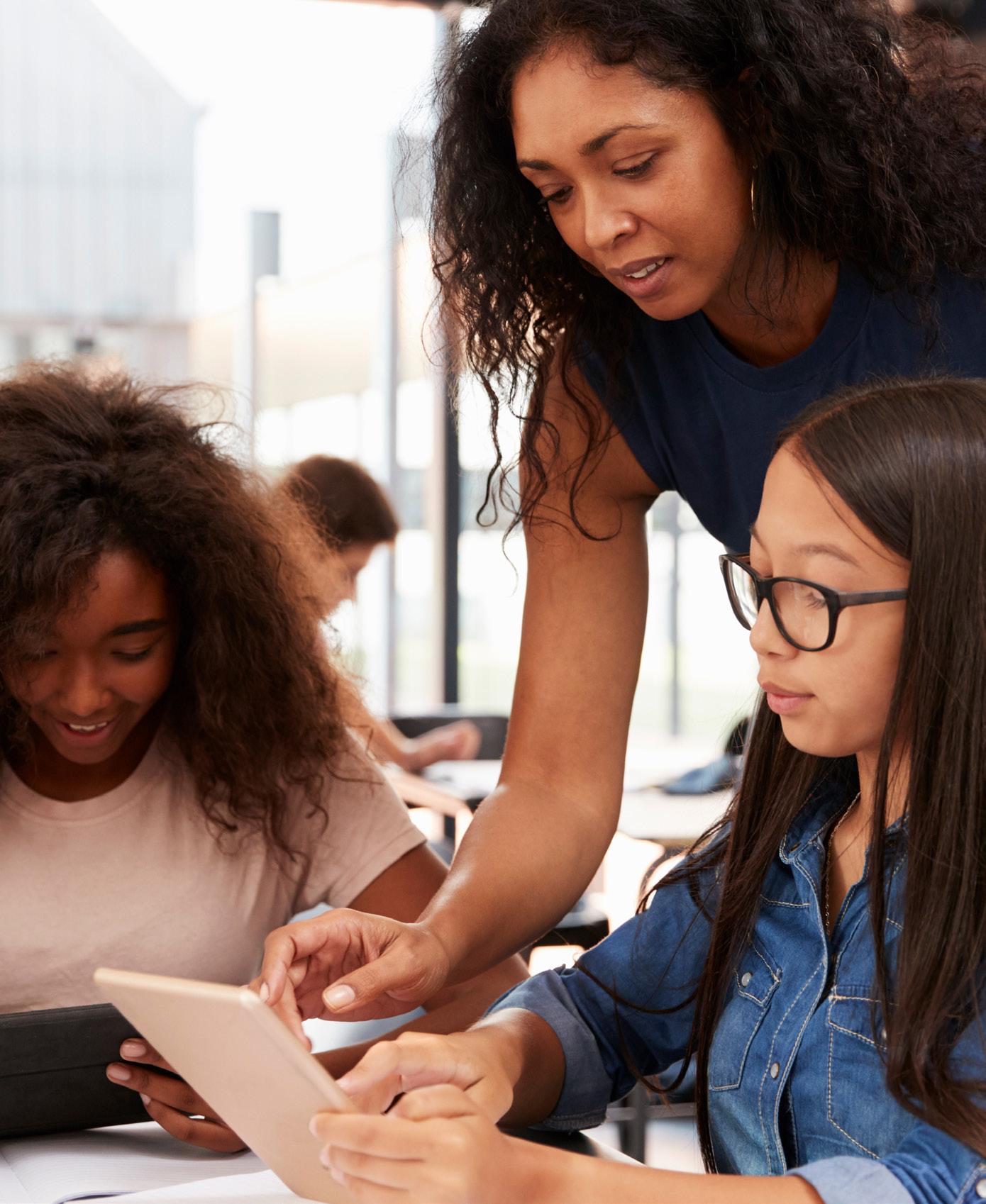

A principal goal of the project was to discover and interrogate theories and practices deemed beneficial, and in some instances, inimical to the rights and wellbeing of children and young people in the respective geographic and cultural spaces.
Thus, the conference exposed participants to the work being undertaken by the Rights for Children and Youth Partnership (RCYP) project, which was developed to increase knowledge, and where necessary, provide evidence of factors that support or hinder the protection of children and youth rights in Central America, the Caribbean, and diaspora populations in Canada.
The Hummingbird |13
Saint Croix’s big Christmas festival
IS BACK
It’s one of the Caribbean’s greatest Christmas celebrations: the Saint Croix Crucian Christmas Festival, now in its 70th year.
This year’s event runs from 11 December through 7 January, returning in person for the first time since the onset of the pandemic.
“The U.S. Virgin Islands (USVI) is proud to be the only destination in the Caribbean to host three carnival celebrations every year – each with its own flair and flavors, while providing a unique experience friendly for both adults and children,” said Commissioner of Tourism, Joseph Boschulte.
“The success of Saint Thomas Carnival’s official in person return this past Spring, followed by Saint John this Summer, has allowed the
Saint Croix Crucian Christmas Festival to return, with the recognition of being the official close of 2022 Carnival season in the Caribbean and the season opener in 2023.”

The theme for 2022 is “Reflections of Culture Music Mas and Revelry”, according to Ian Turnbull, director of the US Virgin Islands’ Division of Festivals.
Those concepts “represent the local people and our meditation over our history, the impact of these last two years, and return to celebrate our culture, but also our resilience as a destination to always recover and return despite any obstacles we face,” Turnbull said.
This year’s schedule kicks off with Prince and Princess Pagea nt on 11 December, with a full
slate of events from J’ouvert on 5 January to the Adults Parade on 7 January.
It’s a beloved event that has its roots in the times when enslaved people in the USVI joined in Christmas celebrations, along with Puerto Rico’s Three Kings Day celebration.
Indeed, the festival “represents a way of life in the Caribbean,” the USVI Division of Festivals says. “Visitors can celebrate with locals as they listen to music set to the rhythms of calypso, soca and steel pan music. They can dance with Moko Jumbies (stilt walkers and dancers), indulge in local delicacies, and experience all facets of the USVI’s diverse culture.”
14|The Hummingbird
ECLAC
family
The ECLAC Port of Spain family extends a warm welcome to Esther Chong Ling, who joined us as a Programme Management Assistant, in the Sustainable and Disaster Development Unit (SDDU), from October 2022.

ESTHER CHONG LING PROGRAMME MANAGEMENT ASSISTANT
Esther brings to ECLAC over six years of experience in administrative and operational support. She held many administrative positions, most recently with United Nations ECLAC as Team Assistant, Central Pathfinders Environmental Foundation as a Secretary, and as Customer Service Representative at M&E Insurance Agency in Trinidad and Tobago.
Esther is the holder of a Master’s in Business Administration from the Australian Institute of Business, and a Bachelor of Science degree in Biology with Minors in Environmental Biology and Botany from The University of the West Indies.
SDDU
WELCOMES ESTHER CHONG LING The Hummingbird |15
THE KITCHEN
CAKE Cayman Cassava
What you will need:
• 3 lb. grated cassava
• 2 lb. light brown sugar
• 2 cans coconut milk (14 ounce)
• 2 tbsp. vanilla extract
• 1 tsp. Cayman Sea Salt
• 1⁄2 tsp. nutmeg

• 1⁄2 tsp. cinnamon
• 1⁄2 tsp. cloves
• 1 stick margarine or butter, melted
• 4 heaping teaspoons cornstarch
How to Make it:
STEP 1
Preheat oven to 350 degrees. In large mixing bowl add cassava and stir in coconut milk and vanilla. Use a little water to rinse the cans and get all of the coconut milk out. Then add brown sugar, salt, cinnamon, cloves and nutmeg. Stir well.
STEP 2
In a small container add cornstarch and just enough water to dissolve. Cover and shake. Then add to contents already in bowl. Add melted margarine or butter. Stir well.
STEP 3
Lightly butter glass baking pan and pour in the above mixture in pan. Bake for about an hour or until a firm golden brown is achieved.
16|The Hummingbird

The Hummingbird |17
CONTACT US
CONTACT US

ECLAC Subregional Headquarters for the Caribbean,
1 Chancery Lane, P.O. Box 1113, Port of Spain, Trinidad and Tobago.
ECLAC Subregional Headquarters for the Caribbean, 1 Chancery Lane, P.O. Box 1113, Port of Spain, Trinidad and Tobago, West Indies.
MEDIA CONTACT
Telephone: 1 868 224 8000
Tel.: 1 868 224 8075
E-mail: registry@eclacpos.org
E-mail: eclac-media-pos@eclac.org
MEDIA CONTACT
Tel.: 1 868 224 8075


E-mail: media-pos@eclac.org
SOCIAL MEDIA
SOCIAL MEDIA




CLICK HERE OR SCAN THE QR CODE TO VISIT OUR WEBSITE...































